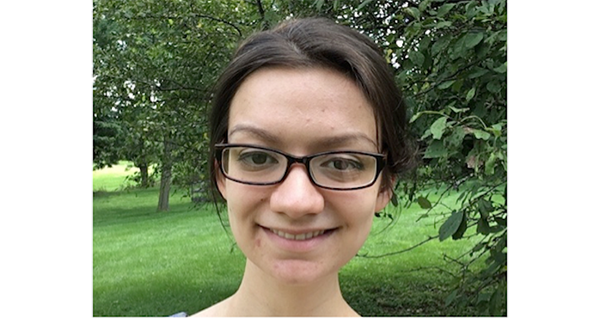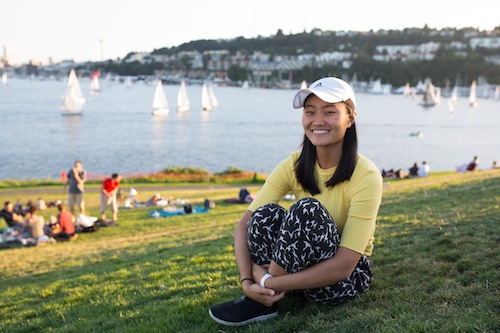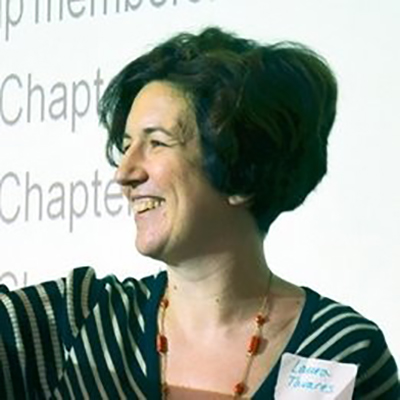Science Research
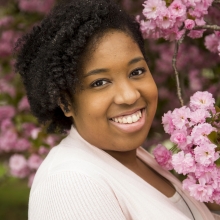
Participating in research experiences as an undergraduate is an excellent way to add depth to your science understanding and actively engage with what you are learning in the classroom. By doing so, you further develop your laboratory, analytical, and problem-solving skills, and you start to build your network with faculty members. Research experiences are valuable components to your resume, and they can make you more competitive for both graduate school and industry opportunities.
Mathematics

Mathematics is essentially the study of patterns, and the understanding and application of these patterns is essential for the foundation of all other sciences. While mathematics is often studied in its own right, it is also applied to all manner of real world problems found in business, government, laboratories, medicine, engineering, and more.
Arts Education
As a field, art education spans traditional K-12 art classrooms to university/college teaching and even to more community-oriented spaces, like museums, arts centers, and educational non-profits. This field even crosses over into healthcare in the form of vocational rehabilitation and art therapy programs.
On-Campus Recruiting Program Policies (Students)
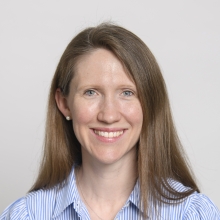
Career Education expects all students to abide by the following rules in order to maintain the success and integrity of Wellesley’s recruiting program.
National Institutes of Standards & Technology Summer Undergraduate Research Fellowship (NIST SURF) (students)

The National Institute of Standards and Technology (NIST) offers Summer Undergraduate Research Fellowships (SURF) at NIST laboratories in Gaithersburg, MD; Boulder, CO; and Waimanalo, Hawaii. The Summer Undergraduate Research Fellowship is designed to inspire undergraduate students to pursue careers in STEM (science, technology, engineering, and mathematics) through a unique research experience that supports the NIST mission. Eligible are currently enrolled undergraduates who are US citizens or permanent residents, majoring in chemistry, computer science, physics, engineering, materials science, fire research, nanotechnology, information technology, mathematics, biology, manufacturing, statistics, or another STEM discipline.
Barry M. Goldwater Scholarship (sophomores and juniors)

Supports one or two years of undergraduate study in the fields of mathematics, engineering, and natural sciences. Eligible are college sophomores or juniors who are US citizens, permanent residents, and nationals intending to pursue research careers in STEM fields. Campus application deadline typically in late November/early December.
Projects for Peace (students)

Created in 2007 by Kathryn Wasserman Davis (Wellesley College '28), the Projects for Peace program offers undergraduates and graduating seniors funding to design a grassroots project for the summer of 2024—anywhere in the world — that promotes peace and addresses the root causes of conflict among parties. Projects may employ innovative techniques for engaging project participants in ways that focus on conflict resolution, reconciliation, building understanding and breaking down barriers that cause conflict, and finding ways to resolve conflict and maintain peace. Any current Wellesley student is eligible to apply. Campus application deadline typically in January.
Churchill Scholarships (seniors & graduates)

Supports one year of graduate study (including one-year research degrees) in science, mathematics, or engineering at Cambridge. Eligible: graduating seniors and recent graduates of Wellesley College who are US citizens with majors in appropriate STEM fields. Campus application deadline typically in early October.
“In the past year I’ve spent a lot of time thinking, talking, and journaling about my career, values, and interests. The courage to see if different doors would open for me, to reach out to people and ask for their time and wisdom, was sometimes hard to come by, but my curiosity pushed me to do things that were slightly uncomfortable, and the results were worth it.”
“From the beginning, my career mentor was there to brainstorm, encourage, and motivate me to pursue an internship that aligned with my interests.”
“In a given week, I might be working with our program staff who are based around the US, Canada and the UK to design learning experiences for teachers; meeting with partner organizations to plan collaborative projects; consulting with filmmakers or scholars who want to reach students; or researching and writing about challenging issues for educators.... It’s probably unusual to stay at one place for so long, but I’ve always been able to answer ‘yes’ to a few key questions: Am I learning? Is my world getting bigger? Is my work making a difference?”



